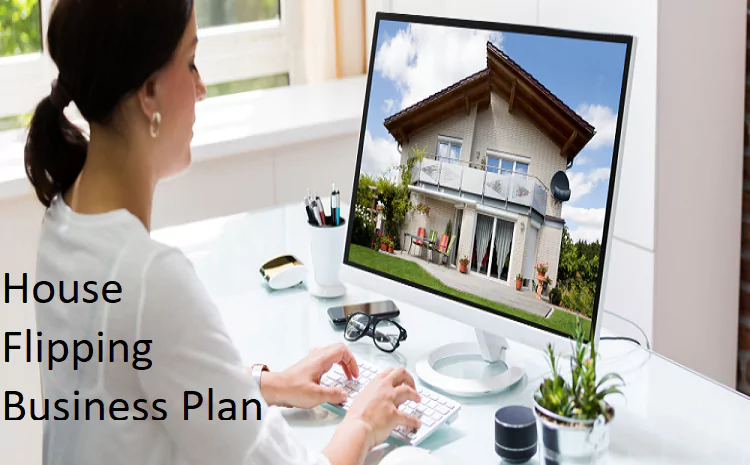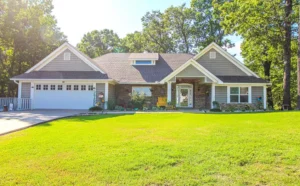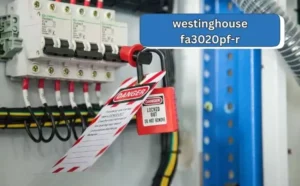House flipping can be an exciting and profitable venture. By buying homes that need repairs, fixing them up, and selling them for a profit, you can build a successful house flipping business. However, starting a house flipping business requires careful planning, an understanding of real estate, and a solid strategy.
Key Takeaways
- House flipping involves purchasing properties, renovating them, and selling them for a profit.
- To succeed, you need to understand the real estate market and have a clear business plan.
- Effective budgeting and project management are essential to ensure profitability.
What Is a House Flipping Business?
A house flipping business is centered around buying, renovating, and selling homes for a profit. Flipping houses can be a great way to enter the real estate industry, especially if you’re willing to put in the work and build a strong network. In this type of business, time and budget management are key to maximizing profit.
| Key Concept | Description |
|---|---|
| House flipping | Buying homes, renovating, and selling for profit. |
| Business plan | A strategic approach to managing costs and timelines. |
Steps to Start a House Flipping Business
Research the Real Estate Market
Before starting a house flipping business, it’s crucial to research the real estate market. Look at property prices, neighborhood trends, and which types of homes are in demand. This helps you identify the best opportunities to flip houses.
| Market Research | Key Areas |
|---|---|
| Neighborhood trends | Look for growing areas with potential for home value appreciation. |
| Property types | Focus on homes that are in high demand in your target market. |
Develop a Business Plan
Creating a business plan is a critical step in starting a house flipping business. Your plan should outline your strategy, goals, and projected costs. This helps you stay organized and focused throughout the flipping process.
| Business Plan Elements | Description |
|---|---|
| Goals | Define your short-term and long-term goals for your flipping business. |
| Budget | Set a clear budget for purchasing, renovating, and marketing homes. |
Secure Financing
Unless you have enough cash on hand, you’ll need to secure financing to start your house flipping business. You can apply for loans, use personal savings, or work with investors. Research different options to find the best way to fund your house flips.
| Financing Options | Description |
|---|---|
| Hard money loans | Short-term loans typically used for house flipping. |
| Private investors | Find partners willing to invest in your flipping business. |
Find the Right Properties
The success of your house flipping business depends on finding the right properties to renovate and sell. Look for homes in desirable neighborhoods that are priced below market value. The key is to buy low, renovate, and sell high.
| Property Features to Look For | Description |
|---|---|
| Fixer-uppers | Homes that need cosmetic or structural repairs but have potential. |
| Location | Choose homes in growing or high-demand neighborhoods. |
Renovate with Profit in Mind
Renovating your house flips is where the real work begins. Focus on updates that add the most value to the property without overspending. A good rule of thumb is to aim for improvements that give a high return on investment (ROI), such as kitchen and bathroom upgrades.
| Renovation Focus | ROI Potential |
|---|---|
| Kitchens | High return, as buyers often prioritize kitchen upgrades. |
| Bathrooms | Popular renovations that can increase a home’s value significantly. |
Key Tips for Success in House Flipping
Manage Your Time and Budget
Effective time and budget management are crucial to your success as a house flipper. Delays and overspending can eat into your profits. Create a detailed timeline for each flip and ensure you stay within your budget.
| Management Area | Why It Matters |
|---|---|
| Time | The longer the project takes, the more it costs. |
| Budget | Staying within budget ensures profitability. |
Build a Reliable Team
To successfully start a house flipping business, you’ll need to work with contractors, real estate agents, and inspectors. Building a reliable network will make the renovation process smoother and help you avoid costly mistakes.
| Team Members | Role |
|---|---|
| Contractors | Handle renovations and repairs. |
| Real estate agents | Assist in buying and selling homes. |
Understand the Market
Knowing the real estate market is essential. House flipping works best when you understand which areas are growing and which types of homes buyers are looking for. Stay updated on local trends and price fluctuations to make informed decisions.
How Much Money Do You Need to Start a House Flipping Business?
The amount of money required to start a house flipping business varies based on location, property prices, and renovation costs. Typically, you’ll need enough capital to purchase a home, cover renovation expenses, and handle additional costs like taxes and permits.
Cost Breakdown
| Expense | Estimated Cost |
|---|---|
| Property purchase | $100,000 – $300,000 (varies by location) |
| Renovations | $20,000 – $60,000 depending on the scope of work |
| Closing costs and taxes | 3-5% of the home’s purchase price |
Challenges of Starting a House Flipping Business
Like any business, house flipping comes with its challenges. The most common challenges include unexpected repair costs, fluctuating home prices, and managing multiple projects at once. However, with careful planning and the right strategy, you can overcome these obstacles.
Common Challenges
| Challenge | How to Overcome |
|---|---|
| Unexpected repairs | Always budget for contingencies. |
| Market fluctuations | Stay informed about local real estate trends. |
Conclusion
Starting a house flipping business can be a rewarding way to build wealth through real estate. By doing thorough research, securing financing, and managing your time and budget effectively, you can create a successful flipping business. Focus on finding the right properties, making smart renovations, and staying informed about the real estate market to ensure long-term success as a house flipper.









